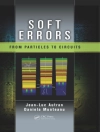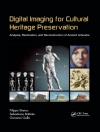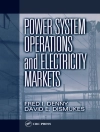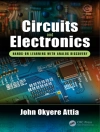This book covers alternative fuels and their utilization strategies in internal combustion engines. The main objective of this book is to provide a comprehensive overview of the recent advances in the production and utilization aspects of different types of liquid and gaseous alternative fuels. In the last few years, methanol and DME have gained significant attention of the energy sector, because of their capability to be utilized in different types of engines. This book will be a valuable resource for researchers and practicing engineers alike.
Cuprins
Alternative Fuels: Current Status and Way Forward.- Diethyl Ether as an Alternative Fuel for Diesel Engine.- Bio-GTL: Recent Advances of the Potential Technique.- Production and testing of Biodiesel obtained from high fatty acid soybeans oil (HEFAOBD).- Methanol Economy vs Electrical Vehicle Economy – Indian Context.- Agricultural Waste Derived 2nd Generation Ethanol Blended Diesel Fuel in India: A Prospective.- Alternative Fuels: Current Status and Way Forward.- Production and performance parameter analysis of biodiesel from Chia oil.- Performance, Combustion and Emission Analysis of Mixed Biodiesel: A Sustainable Alternative Fuel.- Review of combustion, exhaust emissions and controls of natural gas (NG) fueled vehicles in the transportation sector.- Performance analysis of Pongamia Pinnata (L) Pierre biodiesel: A north east India perspective.- Biogas as a transportation fuel – Current status and future perspectives.- Conversion of Diesel Engine to Methanol Fueled Compression Ignition Engine and Performance and Emission Analysis.- A Review of Coupled Geo-Chemo-Mechanical Impacts of CO2-Shale Interaction on CO2 Enhanced Shale Gas Recovery.- Production of alcohols and esters from renewable energy resources: A promising green energy carrier for clean and sustainable development
Despre autor
Dr. Akhilendra Pratap Singh is working at IIT Kanpur. He received his Masters and Ph.D. in Mechanical Engineering from Indian Institute of Technology Kanpur, India in 2010 and 2016 respectively. His areas of research include advanced low temperature combustion; optical diagnostics with special reference to engine endoscopy and PIV; combustion diagnostics; engine emissions measurement; particulate characterization and their control; and alternative fuels. Dr. Singh has edited 7 books and authored 21 book chapters, 40 research articles in international journals and conferences. He has been awarded with ‘ISEES Best Ph.D. Thesis Award’ (2017), ‘SERB Indo-US Postdoctoral Fellowship’ (2017) and ‘IEI Young Engineer Award’ (2017). He is a member of numerous professional societies, including SAE, ASME, and ISEES.
Prof. Yogesh C. Sharma is a full Professor in Department of Chemistry, Indian Institute of Technology (BHU) Varanasi, India. He is Fellow of the Royal Society of Chemistry (FRSC), UK, and a Fellow (Elected) of the Biotech. Research Society of India (FBRS). His areas of interest includes adsorption and diffusion, water remediation, renewable energy, biodiesel production and synthesis of heterogeneous catalysts for biodiesel production. He authored of four books and published more than 150 research papers in reputed international journals. Prof. Sharma is a highly cited research author and has ~8000 citations with h index of 41.
Dr. Nirendra N. Mustafi received his Ph D on particulate emissions from a dual fuel engine operated on alternative gaseous fuels (NG and biogas) from The University of Auckland, New Zealand in 2008. Then he joined back to the department of mechanical engineering at Rajshahi University of Engineering & Technology (RUET), Bangladesh. He was appointed Professor at RUET in 2013, where he teaches different courses of mechanical engineering such as Heat Transfer, Thermodynamics and Applied Thermodynamics, Internal Combustion Engines, Automobile Engineering, Renewable Energy. He also served as the Head of mechanical engineering department, Dean of faculty of mechanical engineering and Director of Institute of Energy and Environmental studies at RUET. His research experiences and interests lie on Engine particulate matter emissions measurement and characterization, Dual fuel engines, Alternative fuels for IC engines, Simulation analysis of SI engine performance and emissions, Sustainable and renewable energy engineering Energy conversions, and Waste-to-energy. Currently, he is staying at Indian Institute of Technology, Kanpur, India as a visiting fellow in mechanical engineering. He has authored and co-authored more than 30 papers in journals and conferences.
Prof. Avinash Kumar Agarwal joined IIT Kanpur in 2001. He worked at the Engine Research Center, UW@Madison, USA as a Post-Doctoral Fellow (1999 – 2001). His interests are IC engines, combustion, alternate and conventional fuels, lubricating oil tribology, optical diagnostics, laser ignition, HCCI, emissions and particulate control, and large bore engines. Prof. Agarwal has published 270+ peer reviewed international journal and conference papers, 35 edited books, 63 books chapters and has 7850+ Scopus and 11900+ Google scholar citations. He is associate editor of ASME Journal of Energy Resources Technology. He has edited “Handbook of Combustion” (5 Volumes; 3168 pages), published by Wiley VCH, Germany. Prof. Agarwal is a Fellow of SAE (2012), Fellow of ASME (2013), Fellow of NASI (2018), Fellow of Royal Society of Chemistry (2018), Fellow of ISEES (2015), and a Fellow of INAE (2015). He is recipient of several prestigious awards such as Clarivate Analystics India Citation Award-2017 in Engineering and Technology, NASI-Reliance Industries Platinum Jubilee Award-2012; INAE Silver Jubilee Young Engineer Award-2012; Dr. C. V. Raman Young Teachers Award: 2011; SAE Ralph R. Teetor Educational Award -2008; INSA Young Scientist Award-2007; UICT Young Scientist Award-2007; INAE Young Engineer Award-2005. Prof. Agarwal received Prestigious Shanti Swarup Bhatnagar Award-2016 in Engineering Sciences.












